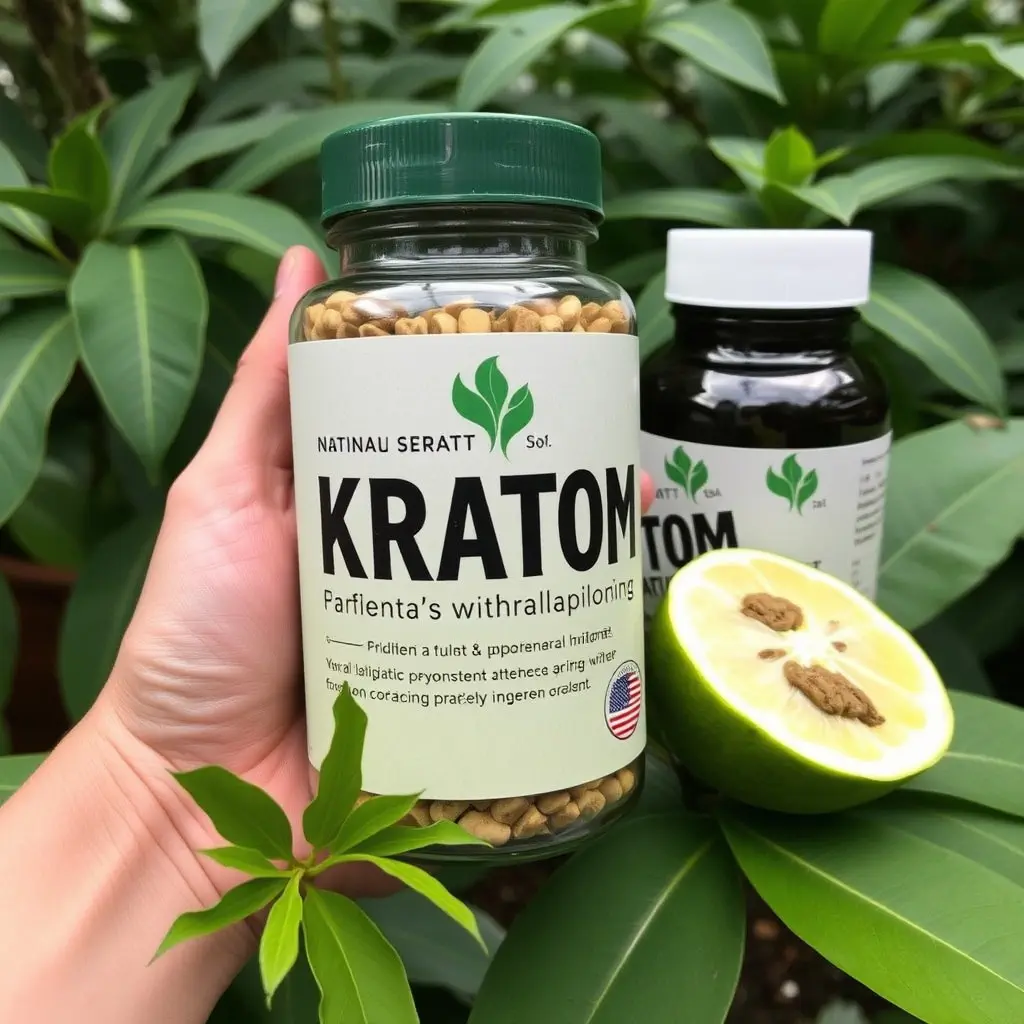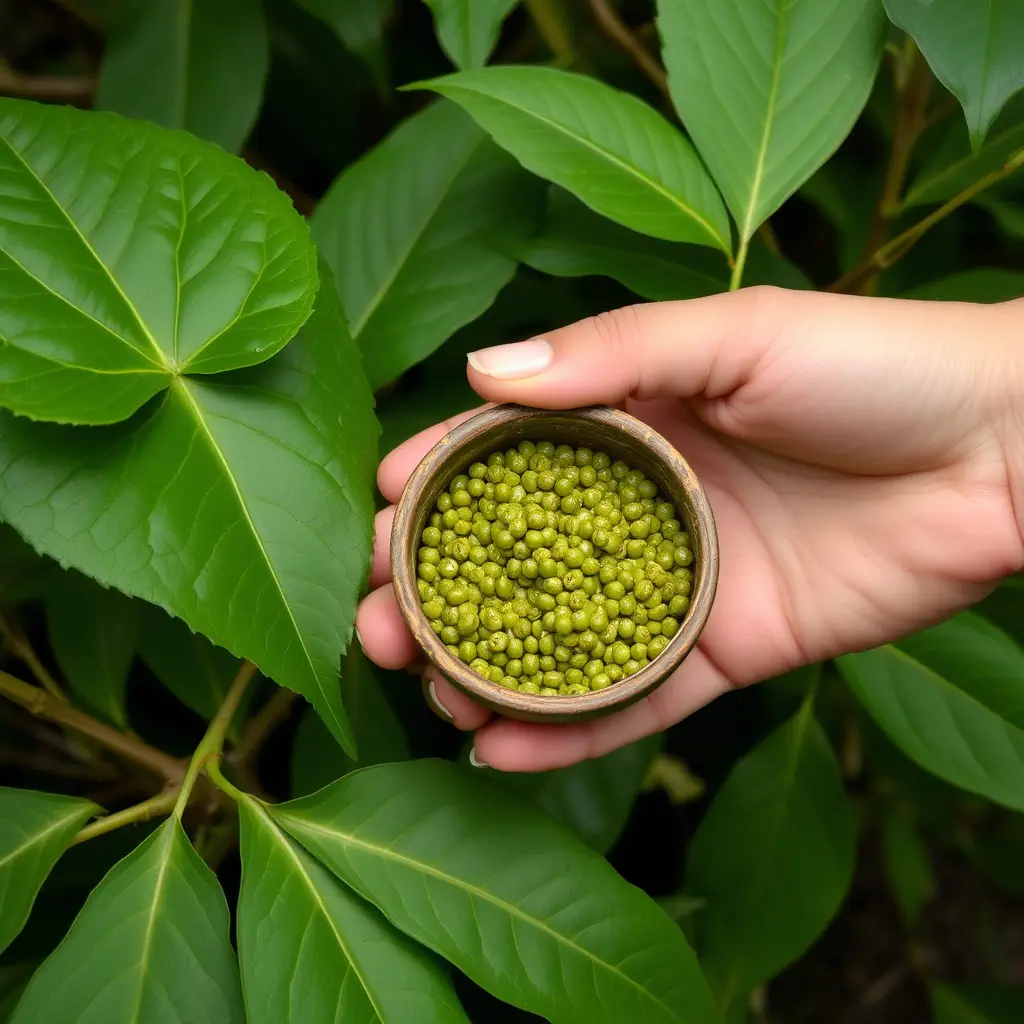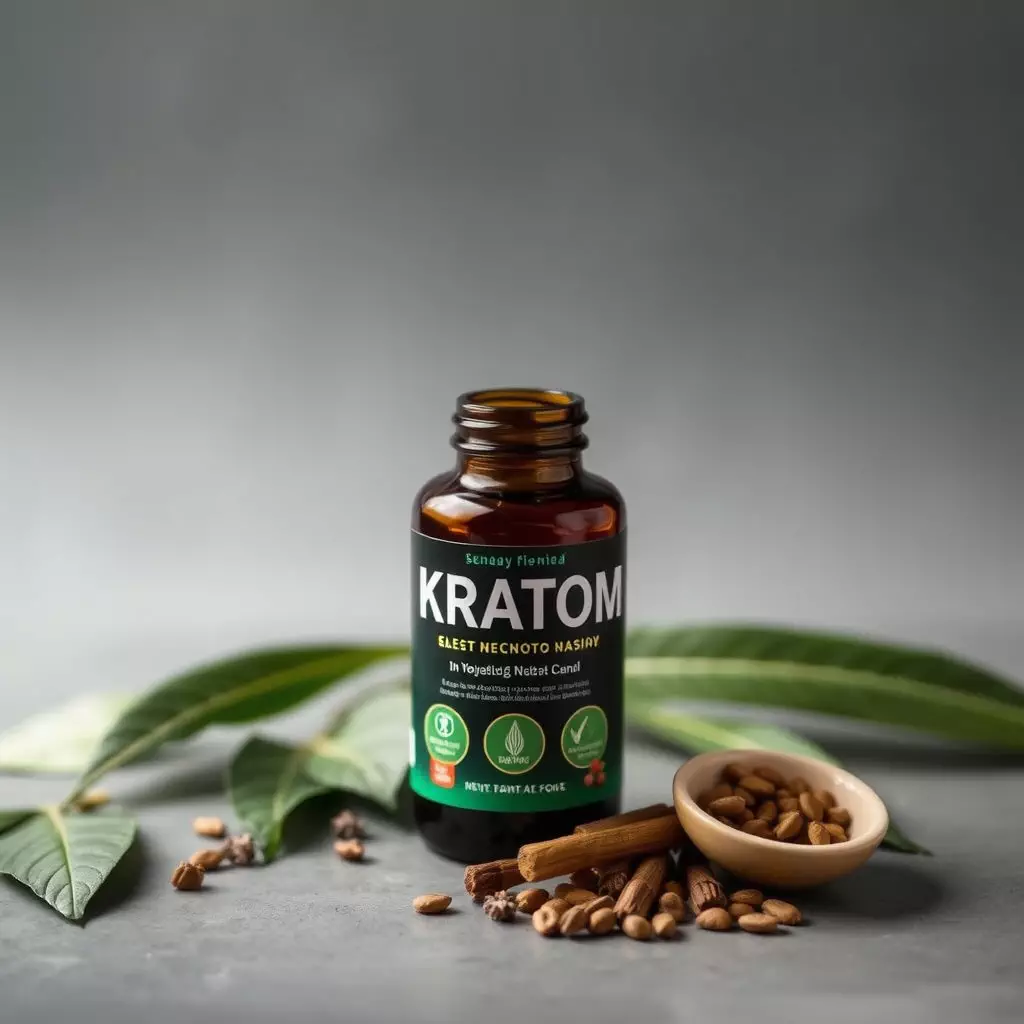Kratom, a plant from Southeast Asia, has garnered attention for its potential impact on mental health and well-being, cognitive function, sleep quality, pain relief, and overall health improvement. Its alkaloid content, particularly mitragynine and 7-hydroxymitragynine, interacts with brain neurotransmitters and opioid receptors, affecting mood, pain perception, emotional stability, concentration, and sleep patterns. Users report benefits such as improved focus, emotional balance, and stress management, while also highlighting its anxiolytic properties that offer feelings of calmness and anxiety relief. The integration of kratom into a balanced lifestyle, including healthy eating, consistent exercise, and effective stress management, may enhance these effects. However, due to individual differences in response, the legal status varying by region, and the plant's potency, it is essential to approach its use with caution, consult healthcare professionals, and follow safe usage practices. On-going research explores kratom's role in holistic health strategies for sustained mental health improvements and overall health improvement. Users are encouraged to proceed with careful consideration and professional guidance to ensure responsible use and potential benefits.
Exploring the multifaceted benefits of kratom, this article delves into its pivotal role in supporting mental health and overall well-being. From enhancing mental clarity and emotional balance to providing therapeutic relief from stress and anxiety, kratom’s potential effects are under scrutiny. Moreover, its impact on improving sleep quality, alleviating pain, and contributing to an individual’s holistic health is examined. A comprehensive look at the scientific research and user experiences illuminates how kratom might be integrated into wellness regimens for a more balanced lifestyle.
- Kratom's Role in Enhancing Mental Clarity and Emotional Balance
- Exploring the Therapeutic Properties of Kratom for Stress Relief and Anxiety Management
- Understanding Kratom's Impact on Sleep Quality, Pain Relief, and Overall Health Improvement
Kratom's Role in Enhancing Mental Clarity and Emotional Balance

Kratom, a tropical evergreen tree native to Southeast Asia, has garnered attention in discussions surrounding mental health and overall well-being. Its leaves contain alkaloids that can influence various neurotransmitters in the brain, potentially offering benefits for mental clarity and emotional balance. Users report that certain strains of kratom may enhance concentration and cognitive function, contributing to improved mental clarity. This perceived enhancement allows individuals to focus more effectively on tasks at hand, thereby enhancing productivity and decision-making capabilities. Moreover, kratom’s interaction with neurotransmitters like serotonin and dopamine can provide a sense of emotional well-being and stability, which is crucial for maintaining a balanced emotional state. The overall health improvement with kratom might be attributed to its potential effects on mood regulation and mental focus, making it a topic of interest for those seeking natural ways to support their psychological well-being.
The impact of kratom on mental health should be approached with caution, as individual responses can vary significantly. While some individuals may find kratom beneficial for promoting mental clarity and emotional balance, others might experience different effects based on the strain, dosage, and personal physiology. It is important to consider the legal status of kratom in one’s region before exploring its use, as it is subject to regulatory control in many countries due to its psychoactive properties. Additionally, integrating kratom into a holistic health regimen that includes proper nutrition, regular exercise, and stress management techniques can be a well-rounded approach to supporting mental health and overall well-being.
Exploring the Therapeutic Properties of Kratom for Stress Relief and Anxiety Management

Kratom, a plant native to Southeast Asia, has garnered attention in various wellness circles for its potential therapeutic properties, particularly in stress relief and anxiety management. The alkaloids found within kratom leaves, such as mitragynine and 7-hydroxymitragynine, interact with the brain’s opioid receptors, which can lead to a modulation of mood and pain perception. Users often report feelings of calmness and reduced anxiety after consuming kratom, suggesting its anxiolytic effects. As research continues to evolve, studies indicate that kratom may offer a supportive role in managing stress-related conditions without the negative side effects associated with conventional pharmaceuticals. This has led to increasing interest in how kratom could be incorporated into holistic strategies for overall health improvement, with users experiencing a more balanced mental state and an enhanced capacity to cope with daily pressures.
The impact of kratom on mental well-being extends beyond immediate stress relief; it may also contribute to sustained improvements in psychological health over time. Anecdotal evidence and preliminary research support the idea that consistent, responsible use of kratom can aid in maintaining a positive mood and promoting a sense of tranquility. It is important for individuals considering kratom as part of their wellness regimen to consult with healthcare professionals and adhere to safe usage guidelines due to its potency and potential interactions with other substances or medications. As the body of scientific evidence grows, so too does the understanding of kratom’s role in supporting mental health and overall well-being, offering a promising avenue for those seeking natural alternatives to manage stress and anxiety.
Understanding Kratom's Impact on Sleep Quality, Pain Relief, and Overall Health Improvement

Kratom, a plant native to Southeast Asia, has garnered attention for its potential impact on sleep quality, pain relief, and overall health improvement. Users often report that specific strains of kratom can induce a sense of calm and relaxation, facilitating better sleep patterns. The alkaloids present in kratom leaves, such as mitragynine and 7-hydroxymitragynine, are believed to interact with the brain’s opioid receptors, which can lead to sedative effects. This sedative potential is particularly relevant for individuals experiencing sleep disturbances, contributing to an improved sleep quality and, consequently, aiding in the overall health improvement with kratom.
In addition to its effects on sleep, kratom is also recognized for its analgesic properties. The pain-relieving capabilities of kratom are attributed to its interaction with the body’s opioid receptors, which can help alleviate chronic and acute pain. By addressing pain at the root, individuals may experience a decrease in stress and tension, further contributing to an enhanced sense of well-being. The comprehensive effect of kratom on both sleep and pain relief is thought to have a synergistic impact on overall health improvement, potentially improving mood, energy levels, and mental clarity, all of which are integral to a person’s holistic health. Users considering the use of kratom for these purposes should approach it with caution and consult healthcare professionals to ensure safe and effective use.
In conclusion, the evidence suggests that kratom may offer significant support for mental health and overall well-being. Its potential to enhance mental clarity and emotional balance, provide stress relief and anxiety management, and improve sleep quality and pain relief, collectively contribute to a holistic health improvement with kratom. While further research is warranted to fully understand its effects, the current findings are promising and highlight the need for a nuanced approach to its use within the framework of mental health care. It is crucial to consult healthcare professionals when considering incorporating kratom into one’s wellness regimen, as individual responses may vary.






